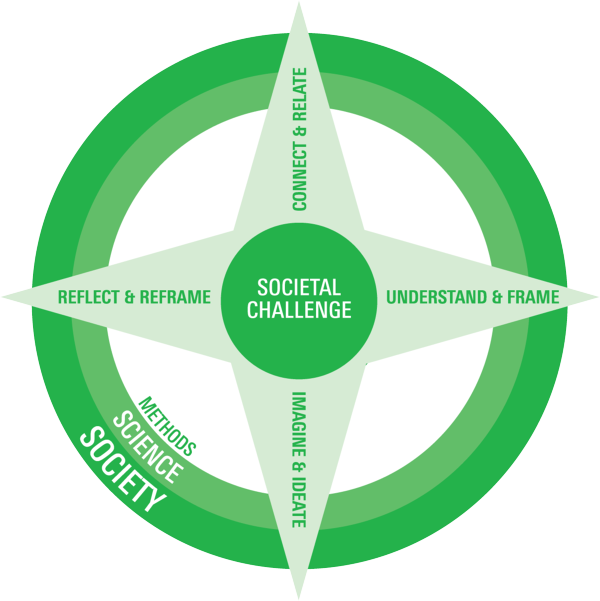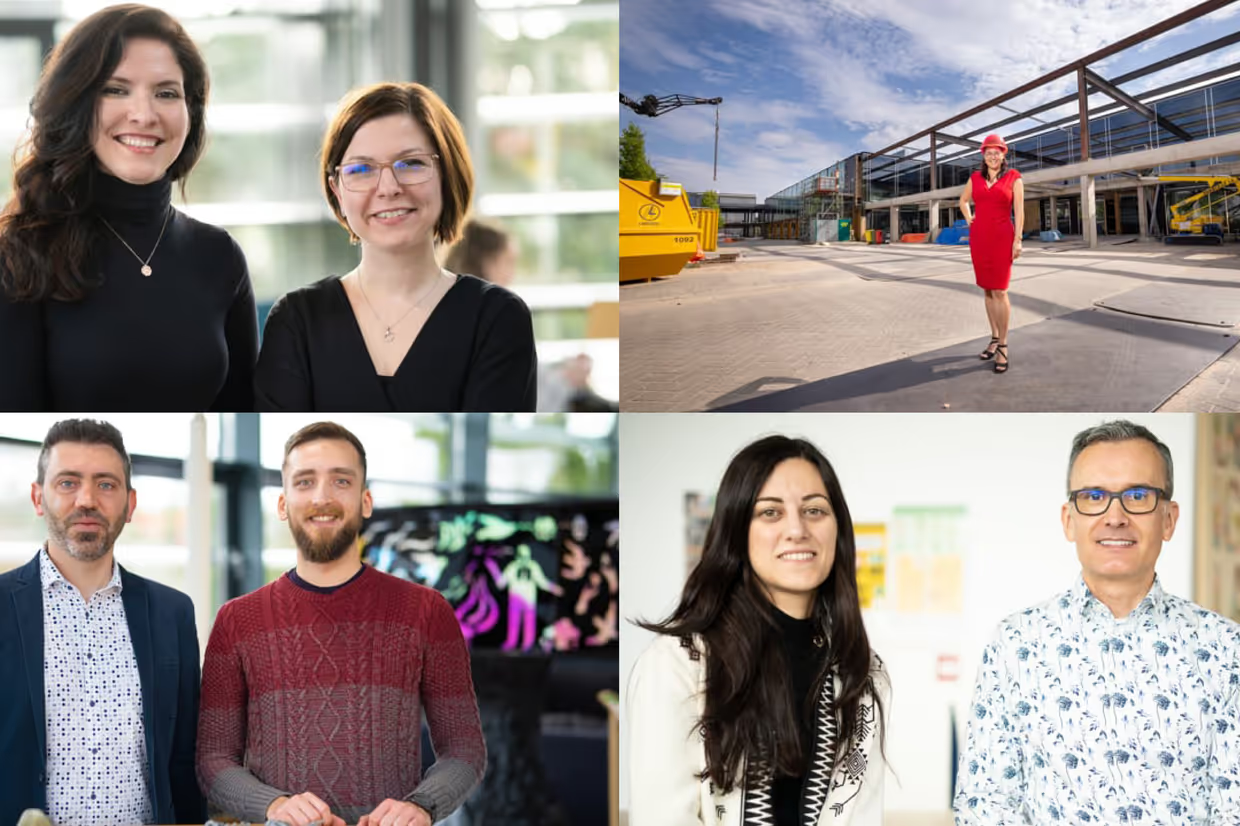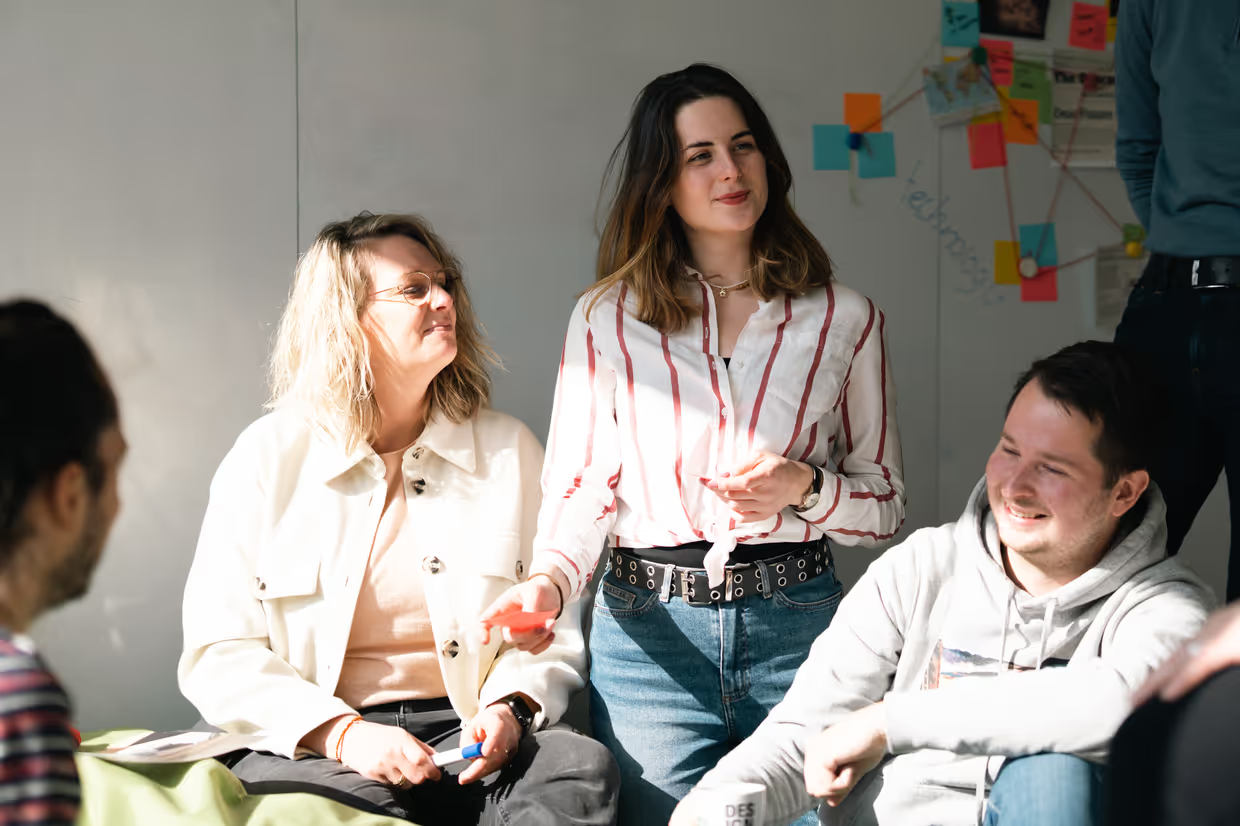TACKLING SOCIETAL CHALLENGES AND
CO-SHAPING THE FUTURE WE WANT TO LIVE IN.
Today’s challenges are more complex than ever because they are part of complex societal, technological and environmental systems. Challenges are interrelated: tackling one today might raise issues tomorrow. Solutions that work in a context, might break into another. How to deal with our complex world, then? DesignLab University of Twente has developed the Responsible Futuring approach.
Responsible Futuring
At DesignLab, we have developed Responsible Futuring, our approach to addressing societal challenges. Rooted in the designerly tradition of design thinking, our approach departs from society and its challenges rather than solutions and technology. We employ trans-disciplinary practices, responsible design, and social involvement to drive societal impact. Like our approach to citizen science, we aim to engage citizens on relevant societal topics such as health innovation, digital society, and climate change.
Responsible Futuring promotes creative collaboration and knowledge exchange among engineers, social scientists, businesses, policymakers, and citizens. We value the expertise and lived experiences of all stakeholders, but also encourage them to break disciplinary boundaries and become agents of societal change. While shaping desirable futures, Responsible Futuring prompts us to recognise our role, contemplate the short- and long-term effects of societal challenges, ideas, and technologies, and generate potential solutions using moral imagination.
Open access toolbox
To foster connections between science and society, DesignLab serves as an experimental and innovative ecosystem where stakeholders meet, brainstorm and aim to find solutions for societal challenges. Therefore, DesignLab offers open access information, tools and templates in the Responsible Futuring toolbox.
News & must-reads
Collaborations
We actively seek collaborations with academic and non-academic partners to tackle societal challenges.
Through our collaborations we can advance our understanding of Responsible Futuring and its potential to address societal challenges. Let's co-shape the futures we want to live in. Contact the Responsible Futuring crew!
Society, you and the crew
At DesignLab, the expertise and developments lie within the Responsible Futuring crew. The team consists of researchers, (senior and student) moderators, a community builder and project leaders. Together with various stakeholders within the quintuple helix, we put the approach into practice and enable meaningful collaborations. As a result, we make it possible to conduct (new) research, valorise, execute innovative projects and offer you the latest developments within the approach.
Collaborating with DesignLab means getting the know-how of Responsible Futuring and insights into the perspectives of academia, civil society, industry and government. It enables you to work on the challenges that we as society need to tackle, while keeping ethical implications into account.
Let’s work together!






